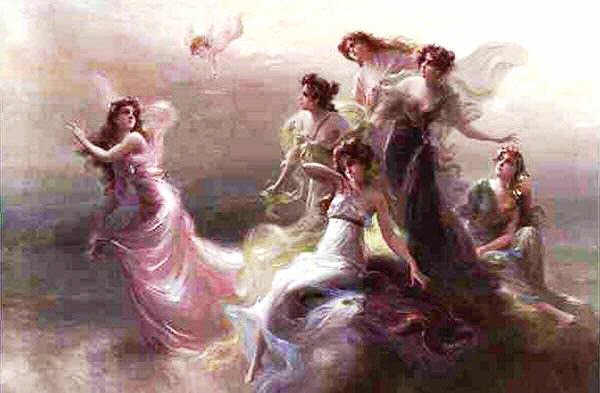Merope is one of the seven Pleiades, daughters of Atlas and Pleione. Pleione, their mother, is the daughter of Oceanus and Tethys and is the protector of sailors.
Merope is the faintest of the stars because she was the only of the Pleiades to have married a mortal. Her sisters had relations with gods and bore them sons, but Merope married Sisyphus and lived on the island Chios. Merope gave birth to Glaukos, Ornytion, Almus, Thersander and Sinon. The star Merope is often called the "lost Pleiad" because she was at first not seen by astronomers or charted like her sisters. One myth says that she hid her face in shame because she had an affair with a mortal man, another says she went to Hades with her husband, Sisyphus.
They were the sisters of Calypso, Hyas, the Hyades, and the Hesperides. The Pleiades were nymphs in the train of Artemis, and together with the seven Hyades were called the Atlantides, Dodonides, or Nysiades, nursemaids and teachers to the infant Dionysus.
When their father was given the fate of carrying the heavens on his shoulders, Orion pursued the Pleiades named Maia, Electra, Taygete, Celaeno, Alcyone, Sterope, and Merope after he fell in love with their beauty and grace. Artemis asked Zeus to protect the Pleiades and in turn, Zeus turned them into stars. Artemis was angry because she no longer could see her companions and had her brother, Apollo, send a giant scorpion to chase and kill Orion. Zeus then turned Orion into a constellation to further pursue the Pleiades in the skies.

Comments
Post a Comment